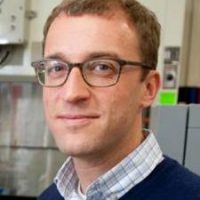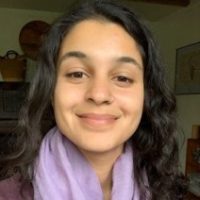UNC SRP trainees and researcher speak to congress members about federal research funding
America Society of Agronomy, Crop Science Society of America and Soil Science Society of America hosted a virtual congressional visit day in March. Attendees were trained to talk to members of congress and their staff.
Every attendee was advocating for $655 million to fund agricultural research.
Two trainees and one researcher from UNC Superfund Research Program participated in the visit day this year. Aakriti Sharma, a postdoc at NC State, and Chelsea Obeidy, a student at the University of Oregon, are Project 4 trainees. Matt Polizzotto, PhD, a professor in University of Oregon’s Department of Earth Sciences also participates in Project 4 research.

Dr. Matthew Polizzotto
“They’ve been doing this program for 10 years or so,” Polizzotto said. “It’s getting bigger and bigger, as, frankly, scientists are getting more interested in advocating and trying to reach out to people beyond their scientific communities.”
The organizations trained attendees in three areas. They taught attendees about how to talk to congress members about scientific topics; the budgetary process in congress; and the meeting with the representatives.
Attendees were grouped into delegations of one to three by state and presented their requests together. Though all attendees advocated for the same funding, each drew from personal stories or geographically applicable examples as they spoke to congressional staff.

Aakriti Sharma, Project 4 trainee
Sharma was surprised when Congressman David Price actually attended the presentation. Usually, the groups only spoke to the representatives’ staff.
Sharma talked about her research with UNC SRP and how arsenic in water will affect agriculture and human health. The program was a good experience to share because arsenic exposure affects constituents all around the state.

Chelsea Obeidy, Project 4 trainee
“When you’re advocating to Congress, you’re trying to describe, not just how whatever you’re advocating for will be beneficial to you but to their constituents,” Polizzotto said. “Whether it’s the redder section or bluer section or whatever, keeping people safe from being poisoned, people generally agree with that.”
Sharma said this advocacy challenges scientists to find interesting research directly impacting communities because that’s persuasive to representatives.
She plans to apply for the 2022 visit day to hopefully attend in person at the capital.
“I’m from Nepal. There’s nothing like this. We cannot talk to the policymaker directly,” Sharma said. “You don’t realize how important it is, knowing that they will actually listen to you. I really wanted to experience what it is to talk to these people.”
View article written by Sharma and Obeidy titled, 2021 Congressional Visits Day Goes Virtual, in CSA News.
